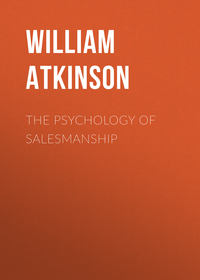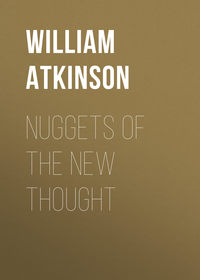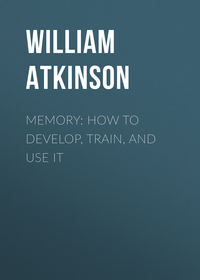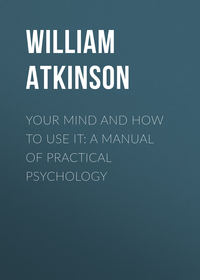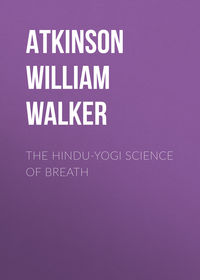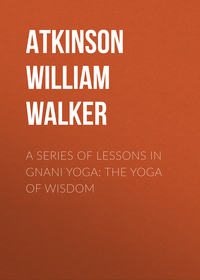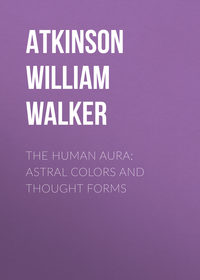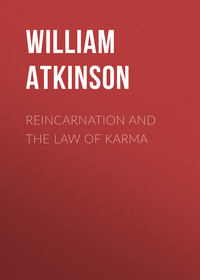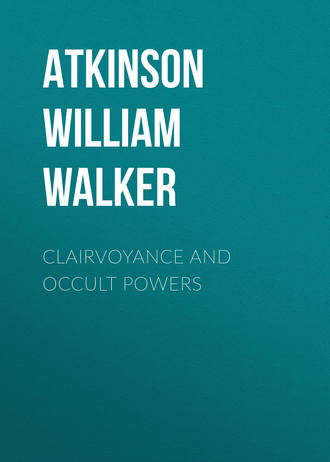 полная версия
полная версияClairvoyance and Occult Powers
"Again, he will have the additional power of being able to hunt about for what he wants. By means of the other varieties of clairvoyance, for all practical purposes he may find a person or place only when he is already acquainted with it; or, when he is put en rapport with it by touching something physically connected with it, as in psychometry. By the use of the astral body, however, a man can move about quite freely and rapidly in any direction, and can (for example) find without difficulty any place pointed out upon a map, without either any previous knowledge of the spot or any object to establish a connection with it. He can also readily rise high into the air so as to gain a bird's eye view of the country which he is examining, so as to observe its extent, the contour of its coastline, or its general character. Indeed, in every way his power and freedom are far greater when he uses this method than they are in any of the lesser forms of clairvoyance."
In many well authenticated cases, we may see that the soul of a dying person, one whose physical end is approaching, visits friends and relatives in the astral body, and in many cases materializes and even speaks to them. In such cases the dying person accomplishes the feat of astral manifestation without any special occult knowledge; the weakened links between the physical and the higher phases of the soul render the temporary passing-out comparatively easy, and the strong desire of the dying person furnishes the motive power necessary. Such visits, however, are often found to be merely the strongly charged thought of the dying person, along the lines of telepathy, as I have previously explained to you. But in many cases there can be no doubt that the phenomenon is a clear case of astral visitation and materialization.
The records of the Society for Psychical Research contain many instances of this kind; and similar instances are to be found in other records of psychical research. I shall quote a few of these cases for you, that you may get a clear idea of the characteristics thereof. Andrew Lang, an eminent student and investigator along the lines of the psychic and occult, gives us the following case, of which he says, "Not many stories have such good evidence in their favor." The story as related by Mr. Lang in one of his books is as follows:
"Mary, the wife of John Goffe of Rochester, being afflicted with a long illness, removed to her father's house at West Mailing, about nine miles from her own. The day before her death she grew very impatiently desirous to see her two children, whom she had left at home to the care of a nurse. She was too ill to be moved, and between one and two o'clock in the morning she fell into a trance. One widow, Turner, who watched with her that night, says that her eyes were open and fixed, and her jaw fallen. Mrs. Turner put her hand to her mouth, but could perceive no breath. She thought her to be in a fit, and doubted whether she were dead or alive. The next morning the dying woman told her mother that she had been at home with her children, saying, 'I was with them last night when I was asleep.'
"The nurse at Rochester, widow Alexander by name, affirms that a little before two o'clock that morning she saw the likeness of the said Mary Goffe come out of the next chamber (where the elder child lay in a bed by itself), the door being left open, and stood by her bedside for about a quarter of an hour; the younger child was there lying by her. Her eyes moved and her mouth went, but she said nothing. The nurse, moreover says that she was perfectly awake; it was then daylight, being one of the longest days of the year. She sat up in bed and looked steadfastly on the apparition. In that time she heard the bridge clock strike two, and a while after said: 'In the name of the Father, Son and Holy Ghost, what art thou?' Thereupon the apparition removed and went away; she slipped out of her clothes and followed, but what became on't she cannot tell."
In the case just mentioned, Mr. Lang states that the nurse was so frightened that she was afraid to return to bed. As soon as the neighbors were up and about she told them of what she had seen; but they told her that she had been dreaming. It was only when, later on, news came of what had happened at the other end of the line—the bedside of the dying woman, that they realized just what had happened.
In a work by Rev. F.G. Lee, there are several other cases of this kind quoted, all of which are stated by Mr. Lee to be thoroughly well authenticated. In one of the cases a mother, when dying in Egypt, appears to her children in Torquay, and is clearly seen in broad daylight by all five children and also by the nursemaid. In another, a Quaker lady dying at Cockermouth is clearly seen and recognized in daylight by her three children at Seattle, the remainder of the story being almost identical with that of the Goffe case just quoted.
In the records of the Society for Psychical Research, the following case appears, the person reporting it being said to be of good character and reputation for truthfulness and reliability. The story is as follows: "One morning in December, 1836, A. had the following dream, or he would prefer to call it, revelation. He found himself suddenly at the gate of Major N.M.'s avenue, many miles from his home. Close to him was a group of persons, one of whom was a woman with a basket on her arm, the rest were men, four of whom were tenants of his own, while the others were unknown to him. Some of the strangers seemed to be assaulting H.W., one of his tenants, and he interfered. A. says, 'I struck violently at the man on my left, and then with greater violence at the man's face on my right. Finding, to my surprise, that I had not knocked down either, I struck again and again with all the violence of a man frenzied at the sight of my poor friend's murder. To my great amazement I saw my arms, although visible to my eye, were without substance, and the bodies of the men I struck at and my own came close together after each blow, through the shadowy arms I struck with. My blows were delivered with more extreme violence than I ever think I exerted, but I became painfully convinced of my incompetency. I have no consciousness of what happened after this feeling of unsubstantiality came upon me.'
"Next morning, A. experienced the stiffness and soreness of violent bodily exercise, and was informed by his wife that in the course of the night he had much alarmed her by striking out again and again in a terrific manner, 'as if fighting for his life.' He, in turn, informed her of his dream, and begged her to remember the names of those actors in it who were known to him. On the morning of the following day (Wednesday) A. received a letter from his agent, who resided in the town close to the scene of the dream, informing him that his tenant had been found on Tuesday morning at Major N.M.'s gate, speechless and apparently dying from a fracture of the skull, and that there was no trace of the murderers.
"That night A. started for the town, and arrived there on Thursday morning. On his way to a meeting of magistrates, he met the senior magistrate of that part of the country, and requested him to give orders for the arrest of the three men whom, besides H.W., he had recognized in his dream, and to have them examined separately. This was at once done. The three men gave identical accounts of the occurrence, and all named the woman who was with them. She was then arrested and gave precisely similar testimony. They said that between eleven and twelve on the Monday night they had been walking homewards altogether along the road, when they were overtaken by three strangers, two of whom savagely assaulted H.W., while the other prevented his friends from interfering. H.W. did not die, but was never the same man afterwards; he subsequently emigrated."
Stead, the English editor and psychical researcher, relates the following case, which he accepts as truthful and correct, after careful investigation of the circumstances and of the character and reputation of the person relating it. The story proceeds as follows:
"St. Eglos is situated about ten miles from the Atlantic, and not quite so far from the old market town of Trebodwina. Hart and George Northey were brothers, and from childhood their lives had been marked by the strongest brotherly affection. Hart and George Northey had never been separated from their birth until George became a sailor, Hart meantime joining his father in business. On the 8th of February, 1840, while George Northey's ship was lying in port at St. Helena, he had the following strange dream:
"Last night I dreamt that my brother was at Trebodwina Market, and that I was with him, quite close by his side, during the whole of the market transactions. Although I could see and hear which passed around me, I felt sure that it was not my bodily presence which thus accompanied him, but my shadow or rather my spiritual presence, for he seemed quite unconscious that I was near him. I felt that my being thus present in this strange way betokened some hidden danger which he was destined to meet, and which I know my presence could not avert, for I could not speak to warn him of his peril."
The story then proceeds to relate how Hart collected considerable money at Trebodwina Market, and then started to ride homeward. George tells what happened to his brother on the way, as follows:
"My terror gradually increased as Hart approached the hamlet of Polkerrow, until I was in a perfect frenzy, frantically desirous, yet unable to warn my brother in some way and prevent him from going further. I suddenly became aware of two dark shadows thrown across the road. I felt that my brother's hour had come, and I was powerless to aid him! Two men appeared, whom I instantly recognized as notorious poachers who lived in a lonely wood near St. Eglos. They wished him 'Good night, mister!' civilly enough. He replied, and entered into conversation with them about some work he had promised them. After a few minutes they asked him for some money. The elder of the two brothers, who was standing near the horse's head, said: 'Mr. Northey, we know you have just come from Trebodwina Market with plenty of money in your pockets; we are desperate men, and you bean't going to leave this place until we've got that money; so hand over!' My brother made no reply except to slash at him with the whip, and spur the horse at him.
"The younger of the ruffians instantly drew a pistol, and fired. Hart dropped lifeless from the saddle, and one of the villains held him by the throat with a grip of iron for some minutes, as thought to make assurance doubly sure, and crush out any particle of life my poor brother might have left. The murderers secured the horse to a tree in the orchard, and, having rifled the corpse, they dragged it up the stream, concealing it under the overhanging banks of the water-course. Then they carefully covered over all marks of blood on the road, and hid the pistol in the thatch of a disused hut close to the roadside; then, setting the horse free to gallop home alone, they decamped across the country to their own cottage."
The story then relates how George Northey's vessel left St. Helena the next day after the dream, and reached Plymouth in due time. George carried with him a very vivid recollection of his vision on the return voyage, and never doubted for an instant that his brother had been actually murdered in the manner and by the persons named, as seen in the vision. He carried with him the determination to bring the villains to justice and was filled with the conviction that through his efforts retribution would fall upon the murderers.
In England, justice was at work—but the missing link was needed. The crime aroused universal horror and indignation, and the authorities left nothing undone in the direction of discovering the murderers and bringing them to justice. Two brothers named Hightwood were suspected, and in their cottage were found blood-stained garments. But no pistol was found, although the younger brother admitted having owned but lost one. They were arrested and brought before the magistrates. The evidence against them was purely circumstantial, and not any too strong at that; but their actions were those of guilty men. They were committed for trial. Each confessed, in hopes of saving his life and obtaining imprisonment instead. But both were convicted and sentenced to be hanged. There was doubt in the minds of some, however, about the pistol. The story continues:
"Before the execution, George Northey arrived from St. Helena, and declared that the pistol was in the thatch of the old cottage close by the place where they had murdered Hart Northey, and where they had hid it. 'How do you know?' he was asked. George replied: 'I saw the foul deed committed in a dream I had the night of the murder, when at St. Helena.' The pistol was found, as George Northey had predicted, in the thatch of the ruined cottage." Investigation revealed that the details of the crime were identical with those seen in the vision.
It is a fact known to all occultists that many persons frequently travel in the astral body during sleep; and in many cases retain a faint recollection of some of the things they have seen and heard during their travels in the astral. Nearly everyone knows the experience of waking up in the morning feeling physically tired and "used up;" in some cases a dim recollection of walking or working during the dream being had. Who among us has not had the experience of "walking on the air," or in the air, without the feet touching the ground, being propelled simply by the effort of the will? And who of us has had not experienced that dreadful—"falling through space" sensation, in dreams, with the sudden awakening just before we actually struck earth? And who has not had the mortifying dream experience of walking along the street, or in some public place, and being suddenly overcome by the consciousness that we were in our night-clothes, or perhaps without any clothing at all? All of these things are more or less distorted recollection of astral journeyings.
But while these dream excursions in the astral are harmless, the conscious "going out in the astral" is not so. There are many planes of the astral into which it is dangerous and unpleasant for the uninstructed person to travel; unless accompanied by a capable occultist as guide. Therefore, I caution all students against trying to force development in that direction. Nature surrounds you with safeguards, and interposes obstacles for your own protection and good. Do not try to break through these obstacles without knowledge of what you are doing. "Fools rush in where angels fear to tread," remember; and "a little learning is a dangerous thing." When you have reached the stage of development in which it will be safe for you to undertake conscious astral explorations, then will your guide be at hand, and the instruction furnished you by those capable of giving it to you. Do not try to break into the astral without due preparation, and full knowledge, lest you find yourself in the state of the fish who leaped out of the water onto the banks of the stream. Your dream trips are safe; they will increase in variety and clearness, and you will remember more about them—all this before you may begin to try to consciously "go out into the astral" as do the occultists. Be content to crawl before you may walk. Learn to add, multiply, subtract and divide, before you undertake the higher mathematics, algebra, geometry, etc., of occultism.
LESSON XV.
STRANGE ASTRAL PHENOMENA
There are several phases of astral phenomena other than those mentioned in the preceding chapters, which it will be better for the student to become acquainted with in order to round out his general knowledge of the subject, although the manifestations are comparatively rare, and not so generally recognized in works on this subject.
One of the first of these several phases of astral phenomena is that which may be called Thought-Form Projection. This manifestation comes in the place on the psychic scale just between ordinary clairvoyance on the one hand, and astral body projection on the other. It has some of the characteristics of each, and is often mistaken for one or the other of these phases.
To understand this phenomena, the student should know something regarding the fact that thought frequently takes on astral form, and that these manifestations are known as thought-forms. I have spoken of these in some of the preceding lessons. The ordinary thought-form is quite simple, as a rule, and does not bear any particular resemblance to the sender thereof. But in some cases a person may, consciously or unconsciously, strongly and clearly think of himself as present at some other place, and thus actually create a thought-form of himself at that place, which may be discerned by those having clairvoyant vision. Moreover, this thought-form of himself is connected psychically with himself and affords a channel of psychic information for him. As a rule these thought-forms are only projected by those who have trained their minds and will along occult lines; but occasionally under the stress of strong emotion or desire an ordinary person may focus his psychic power to such an extent that the phenomena is manifested.
Here I will quote from an English investigator of astral phenomena, who has had much experience on that plane. He says: "All students are aware that thought takes form, at any rate upon its own plane, and in the majority of cases upon the astral plane also; but it may not be so generally known that if a man thinks strongly of himself as present at any given place, the form assumed by that particular thought will be a likeness of the thinker himself, which will appear at the place in question. Essentially this form must be composed of the matter of the mental plane, but in very many cases it would draw round itself matter of the astral plane also, and so would approach much nearer to visibility. There are, in fact, many instances in which it has been seen by the person thought of—most probably by means of the unconscious influence emanating from the original thinker. None of the consciousness of the thinker would, however, be included within this thought-form. When once sent out from him, it would normally be a quite separate entity—not indeed absolutely unconnected with its maker, but practically so as far as the possibility of receiving any impression through it is concerned.
"This type of clairvoyance consists, then, in the power to retain so much connection with and so much hold over a newly-created thought-form as will render it possible to receive impressions by means of it. Such impressions as were made upon the form would in this case be transmitted to the thinker—not along an astral telegraph line, but by a sympathetic vibration. In a perfect case of this kind of clairvoyance it is almost as though the seer projected a part of his consciousness into the thought-form, and used it as a kind of outpost, from which observation was possible. He sees almost as well as he would if he himself stood in the place of his thought-form. The figures at which he is looking will appear to him as of life-size and close to hand, instead of tiny and at a distance as in the case of some other forms of clairvoyance; and he will find it possible to shift his point of view if he wishes to do so. Clairaudience is perhaps less frequently associated with this type of clairvoyance than with the others, but its place is to some extent taken by a kind of mental perception of the thoughts and intentions of those who are seen.
"Since the man's consciousness is still in the physical body, he will be able (even when exercising this faculty) to hear and to speak, in so far as he can do this without any distraction of his attention. The moment that the intentness of his thought fails, the whole vision is gone, and he will have to construct a fresh thought-form before he can resume it. Instances in which this kind of sight is possessed with any degree of perfection by untrained people are naturally rarer than in the other types of clairvoyance, because the capacity for mental control required, and the generally finer nature of the forces employed."
I may mention that this particular method is frequently employed by advanced occultists of all countries, being preferred for various reasons. Some of the reasons of this preference as follows: (a) The ability to shift the vision, and to turn around almost as well as in the case of actual astral-body projection—this gives quite an advantage to this method over the method of ordinary clairvoyance; (b) it does away with certain disadvantages of "going out into the astral" in the astral-body, which only trained occultists realize—it gives almost the same results as astral-body clairvoyance, without a number of disadvantages and inconveniences.
In India, especially, this form of clairvoyance is comparatively frequent. This by reason of the fact that the Hindus, as a race, are far more psychic than are those of the Western lands, all else considered; and, besides, there are a much greater number of highly developed occultists there than in the West. Moreover, there is a certain psychic atmosphere surrounding India, by reason of its thousands of years of deep interest in things psychic and spiritual, all of which renders the production of psychic phenomena far easier than in other lands.
In India, moreover, we find many instances of another form of psychic, or astral phenomena. I allude to the production of thought-form pictures which are plainly visible to one or more persons. This phase of psychic phenomena is the real basis for many of the wonder tales which Western travellers bring back with them from India. The wonderful cases of magical appearance of living creatures and plants, and other objects, out of the clear air are the result of this psychic phenomena. That is to say, the creatures and objects are not really produced—they are but astral appearances resulting from the projection of powerful thought-forms from the mind of the magician or other wonder-worker, of whom India has a plentiful supply. Even the ignorant fakirs (I use the word in its true sense, not in the sense given it by American slang)—even these itinerant showmen of psychic phenomena, are able to produce phenomena of this kind which seems miraculous to those witnessing them. As for the trained occultists of India, I may say that their feats (when they deign to produce them) seem to overturn every theory and principle of materialistic philosophy and science. But in nearly every case the explanation is the same—the projection of a strong and clear thought-form on a large scale.
Although I have purposely omitted reference to Hindu psychic phenomena in this book (for the reason given in my Introduction), I find it necessary to quote cases in India in this connection, for the simple reason that there are but few counterparts in the Western world. There are no itinerent wonder-workers of this kind in Western lands, and the trained occultists of the West of course would not consent to perform feats of this kind for the amusement of persons seeking merely sensations. The trained wills of the West are given rather to materializing objectively on the physical plane, creating great railroads, buildings, bridges, etc., from the mental pictures, rather than devoting the same time, energy and will to the production of astral though-forms and pictures. There is a great difference in temperament, as well as a difference in the general psychic atmosphere, between East and West, which serves to explain matters of this kind.
An American writer truly says: "The first principle underlying the whole business of Hindu wonder-working is that of a strong will; and the first necessary condition of producing a magical effect is an increase in the power of thought. The Hindus, owing to that intense love for solitary meditation, which has been one of the most pronounced characteristics from time immemorial, have acquired mental faculties of which we of the Western and younger civilization are totally ignorant. The Hindu has attained a past master's degree in speculative philosophy. He has for years retired for meditation to the silent places in his land, lived a hermit, subdued the body and developed the mind, thus winning control over other minds."
In India, I have seen scenes of far distant places appearing as a mirage in clear air, even the colors being present to the scenes. This, though some what uncommon, was simply a remarkable instance of thought-form projection from the mind of a man highly developed along occult lines. You must remember that in order to produce a picture in the astral, of this kind, the occultist must not only have the power of will and mind to cause such a picture to materialize, but he must also have a remarkable memory for detail in the picture—for nothing appears in the picture unless it has already been pictured in the mind of the mind of the man himself. Such a memory and perception of detail is very rare—in the Western world it is possessed by only exceptional artists; however, anyone may cultivate this perception and memory if he will give the time and care to it that the Hindu magicians do.


